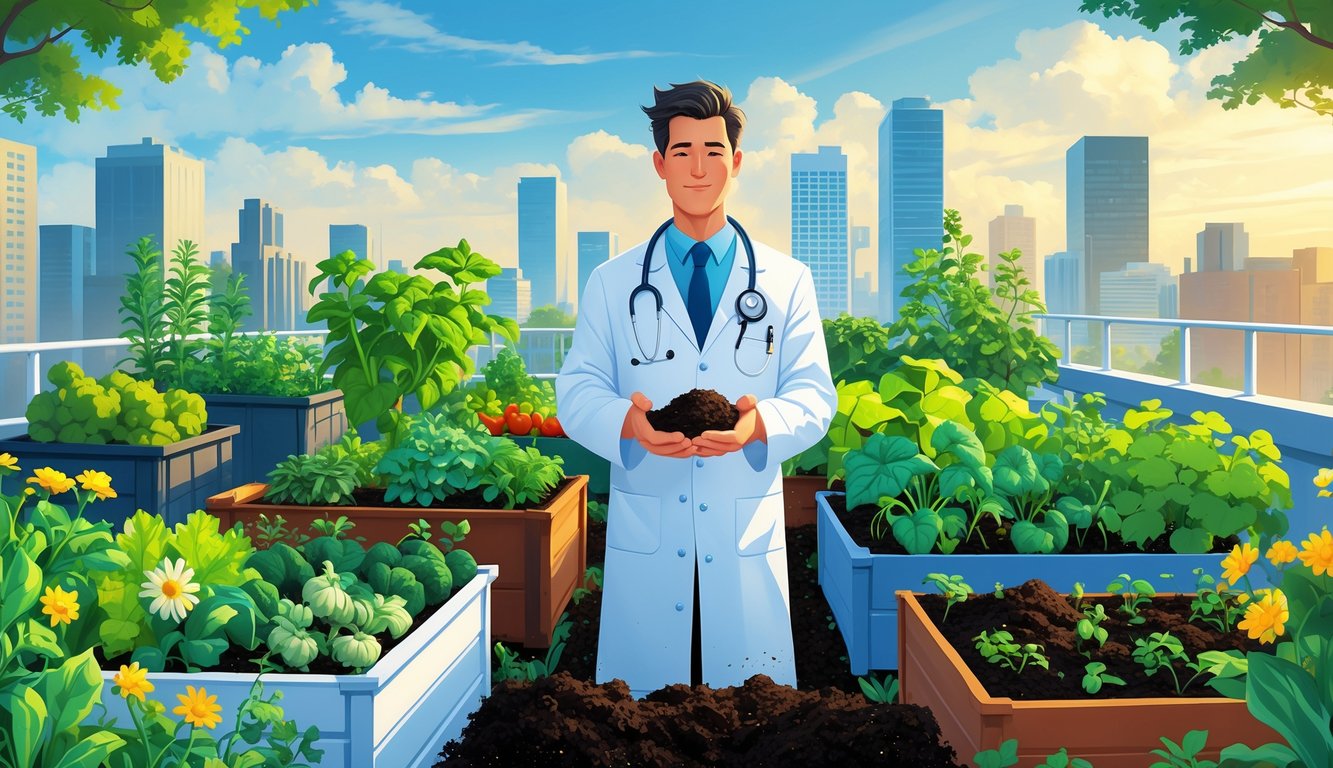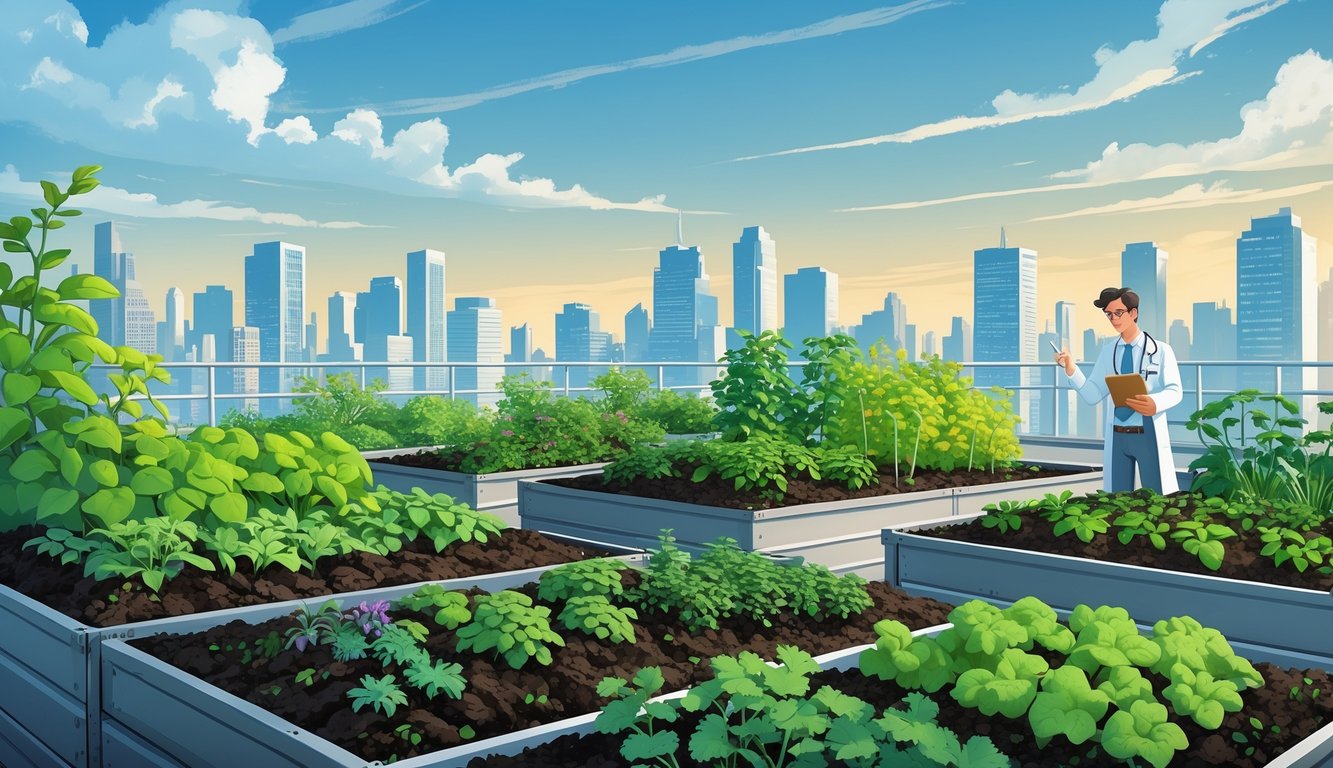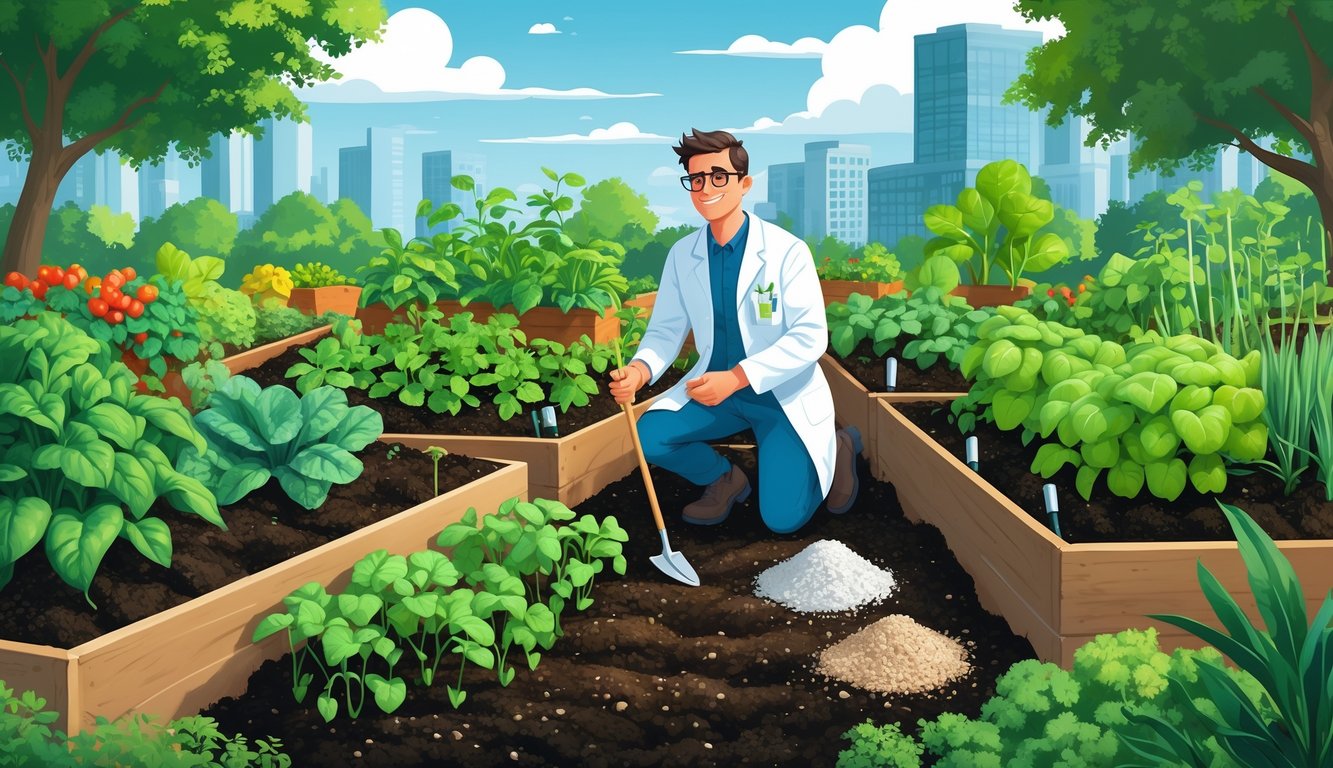
Look, I’ll admit it, I stared at my tomatoes for two weeks straight, convinced my neighbor’s “miracle” raised bed mix was just playground sand with attitude. I finally caved—tried a so-called doctor-approved recipe, not the Instagram kind, but the one that actually lists topsoil, compost, and, yeah, coconut coir (which, let’s be real, is probably just shredded doormat). My plants in this city plot? They finally stopped looking like they were protesting my existence. Apparently, if you just follow what the boring experts say—actual ratios, compost that doesn’t smell like a landfill, that kind of thing—stuff actually grows. Who knew.
It’s wild—everyone’s got some “hack” (egg shells, coffee grounds, sand, whatever’s left from breakfast) but nobody ever pulls out a soil test or, I don’t know, quotes the USDA. I never believed the reviews, honestly, until I saw what a data-backed mix did to my basil. Like, dense, not just alive. Drainage improved, roots stopped rotting, and it didn’t bankrupt me because I ignored all the “secret” tips and just did what the professionals at growboxgenius.com say.
But then you go to the hardware store and every bag says “perfect results.” Lies. I asked a bunch of actual urban gardening people—nobody trusts the premixed stuff for real crops. Urban soils need fixing—fast—or you’re just growing dust. Chapter 22 at SARE.org basically screams it at you. I learned the hard way: without a legit, science-y mix, your lettuce ends up tasting like hot sidewalk.
So, Why Bother with Doctor-Approved Soil Mixes in the City?

Every time I finally get around to checking my tomatoes, somebody calls me. Typical. But these doctor-approved mixes? They’re actually working. My neighbor’s convinced it’s not luck. I mean, when soil scientists and doctors both say, “Hey, this is good for you and your plants,” maybe don’t ignore them? Unless you like wasting money and feeling like an idiot.
Urban Gardening: It’s a Mess
You ever dig under city grass? It’s just trash. Lead, glass, sometimes a basketball, never anything like that OMRI-certified compost my cousin brags about. Urban soil’s always got weird debris, random junk, and stuff nobody in my gardening group can identify (someone found a CD in their kale bed—no joke).
Doctor-approved mixes? Supposedly they fix the chemical mess. I read this 2023 study: better carbon, more nutrients, healthier microbes—stuff that’s actually measurable. And yeah, physicians keep saying nutrient density in veggies matters for your health. Most people still think pH is a shampoo thing. At a workshop, half the crowd brought in “topsoil” that was just crushed concrete.
If you want edible plants you’re not afraid to serve, you get scientific. Maybe I’m paranoid, but when my tomato starts thriving because I shelled out for the right soil chemistry, it’s hard not to smirk at the Instagram crowd.
Health Stuff Nobody Warns You About
Doctors—and I mean real MDs—keep warning about heavy metals, dust, pathogens. Not exactly what the boutique nursery advertises. If you don’t use well-managed soils, you’re basically trading one health risk for another. “Local” doesn’t mean “safe.”
Someone told me their nutritionist said carrot minerals change block by block. Makes sense, honestly. City dust, weird compost, sketchy fertilizer—stuff that could make your doctor nervous. The physicians I’ve talked to all say the same: use tested, doctor-approved mixes, cut the risk of lead, fewer soil-borne bugs, better for your immune system (CDC’s been screaming about this for years).
Cover crops? Not cool, but using them with doctor-approved mixes actually builds healthier urban soils and keeps pollutants down. That’s more useful than an “organic” sticker on lettuce grown in who-knows-what. I ignored the medical advice once—my kale died, and I almost lost the whole season.
So What Even Makes a Soil Mix “Doctor-Approved”?

There’s a world of difference between “organic garden mix” and what my pharmacist friends call “actually safe for kids.” I’ve stood in the store, squinting at every bag, wondering if anything in there would pass a real test. I overheard a doctor rant about hidden heavy metals in compost once. Apparently, it’s a thing.
Medical Approval: Not Just a Sticker
My doctor, she’s relentless. I mention urban gardening, she rattles off a list: no pathogens, no weird contaminants, no weed seeds. And she’s dead serious about people getting rashes from “premium” additives.
Pharmacists? Even pickier. Trace arsenic or lead? Nope. Even if you’re not eating the plants. Suddenly the checklist is endless: pH between 6.0 and 7.5, right carbon-to-nitrogen, nutrients that don’t dump all at once, no parasites (public health people love that one). It’s hilarious—what counts as “clean” changes by city. Quality isn’t about how it looks or smells; you want heavy metal tests and third-party reports.
A friend once texted “GUARDED CERTIFICATES OR NO PURCHASE.” Who actually reads those? Still, it’s more regulated than my allergy meds.
Soil Testing: Not Just for Nerds
Labs get paid to find problems nobody at the garden store wants to talk about. Those CUGE Standards have tables for everything—particle size, pH, sodium absorption, “pathogen load index” (which, let’s be honest, nobody outside pharmacy school understands).
Suppliers try to dodge this, but doctors want batch tests for E. coli, Salmonella, random fungi. Government oversight? Hit or miss. The sample process is wild—mix slices from at least 10 spots, run full spectrographs (here’s a guide). My doctor literally made me bring in lab slips before she’d sign off on my garden.
Every report’s got weird symbols and margin notes nobody reads. “Boron Adjustment Coefficient?” My pharmacist just sighed and started ranting about toxicity. Guessing is not the move.